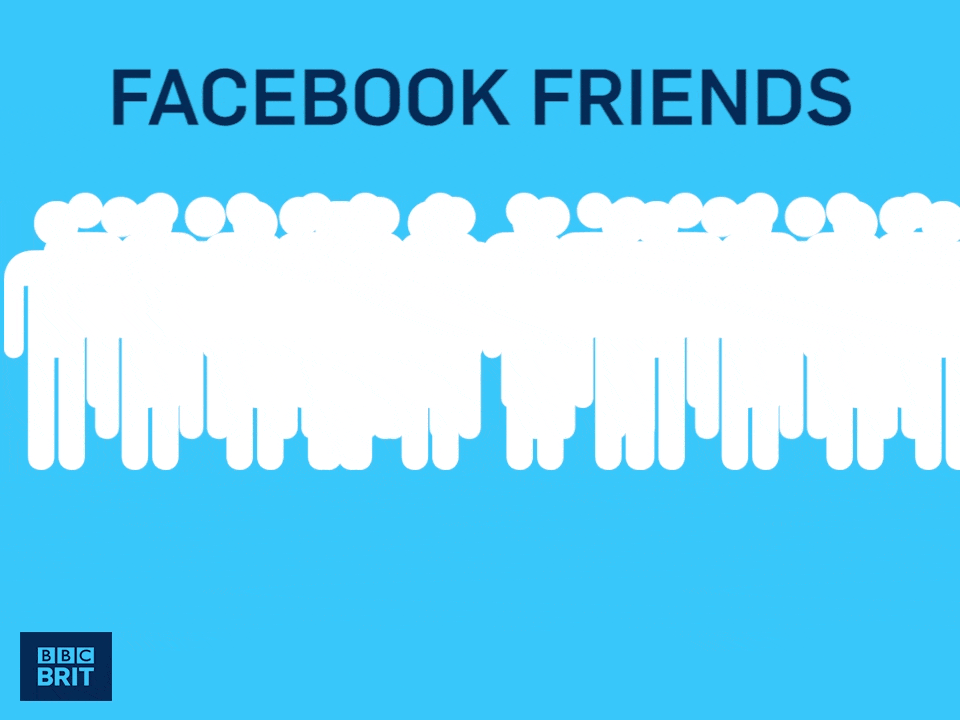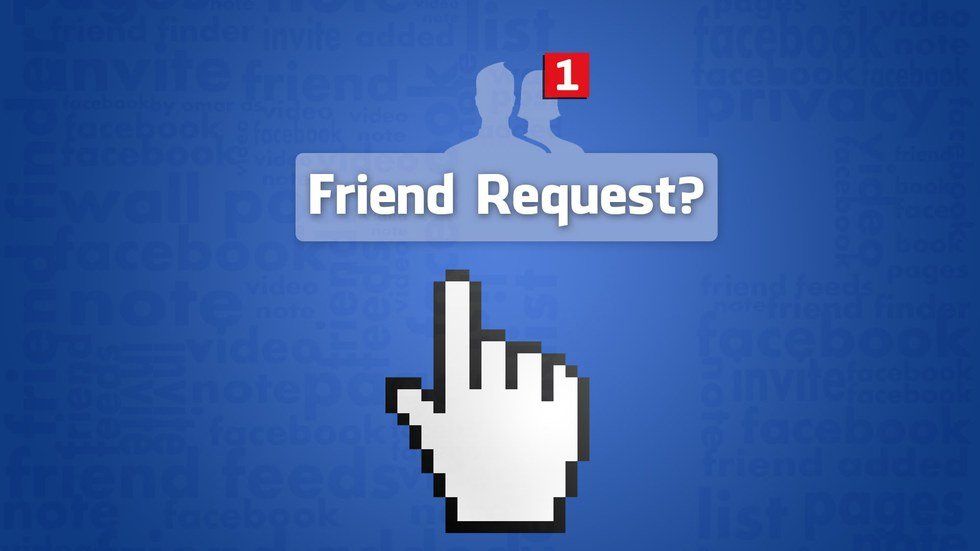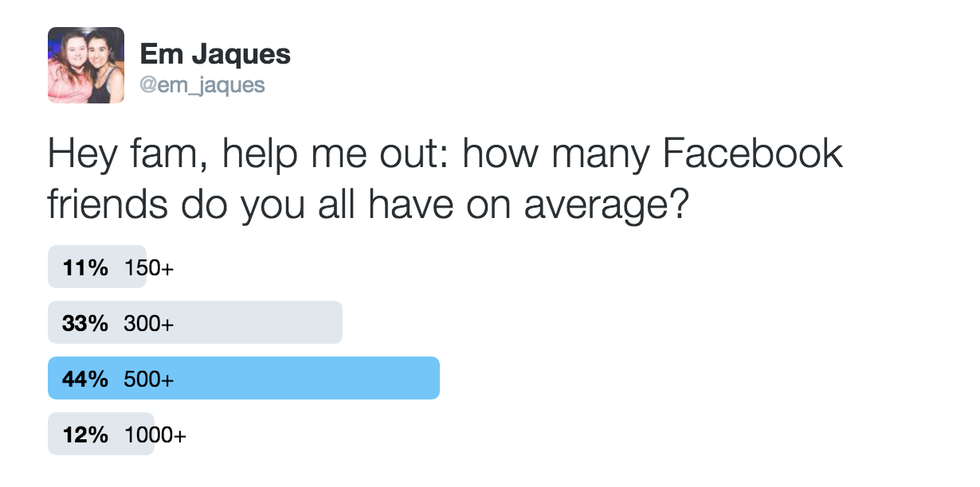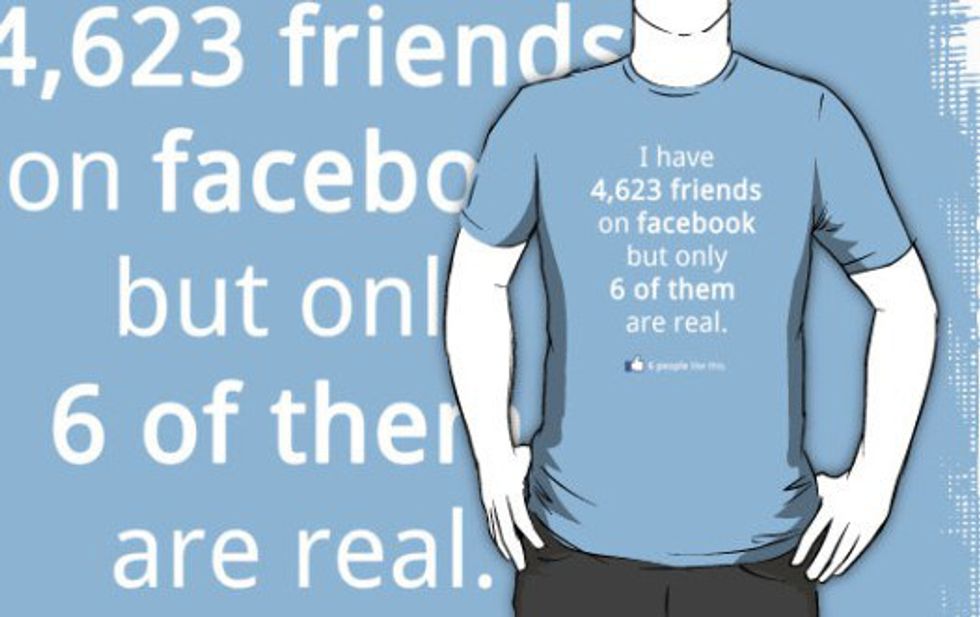Friend
/frɛnd/
noun
1. a person with whom one has a bond of mutual affection, typically one exclusive of sexual or family relations.
This was, at least, the word's original definition. However, the word "friend" is now being stretched out of this definition with the growing use of social media sites, specifically Facebook. In fact, it's even earned a second, informal definition in the dictionary.
Friend
/frɛnd/
verb
2. add (someone) to a list of friends or contacts on a social networking website.
Social media, especially Facebook, can be an incredible tool, especially for keeping up to date with those in our circle. But is it fair to say that the site is corrupting the meaning of the word "friend"?
Traditionally, the word "friend" was used to refer to someone with mutual affections, but in the modern day, this word has changed meaning. We add hundreds, sometimes even thousands of people into our social media circles, and show them a piece of our identity and self. Not only do we share photos, status, and interests, but up to 71 percent of teens share their city or location, 62 percent share relationship status, and up to 20 percent show their cell phone number. And although this may just seem like normal Facebook behavior, it’s interesting to note that the people within the circles with access to this information is far greater than simply friends and family.
Interestingly, I ran a poll on my twitter (pictured below) and asked my followers how many friends they had on Facebook, and 44 percent of the respondents had 500 or more friends on the social media site. A shocking 12 percent had more than one thousand friends in their direct circle.
I found this interesting, because after some research I came across the concept of Dunbar’s number, as coined by British Anthropologist Robin Dunbar. He proposed after studying primates that there is indeed a cognitive limit to the number of people with which one can maintain stable, continuous relationships. Through his research, he proposed that humans can only comfortably maintain 150 relationships in order to keep a stable and cohesive social group. (Source) Within this, he proposed layers of friendship, claiming that on average:
“We have five intimate friends, 15 best friends, 50 good friends, 150 friends, 500 acquaintances, and 1500 people that we recognize based on sight.” -Robin Dunbar
Dunbar also spoke on the use of Facebook and “friends,” correctly pointing out in line with his research that “people can (and sometimes do) have 500 or even 1,000 friends on Facebook, but all they are doing is including people who we would normally call acquaintances.” (Source) This is what truly interests me about Facebook in particular- it is the only social media website that refers to interactions with others as “friends,” rather than “followers” or “people in your circle,” such as that of Twitter or LinkedIn respectively. Not only does Facebook allow us to add “friends,” but it also does not let us distinguish between friendship levels very effectively.
Whilst there is a “close friends” feature that allows for notification or viewing of posts first in the newsfeed, once someone is on your “friends” list, there is no limiting them to the information that they can view, including cellphone number, email, birthday, relationship status or other details that may have been provided. So, everyone on my Facebook friends list can see information that I have provided to the site.
This brings me to discuss my main point- if we are going to share so much, why do we have, in general, so many “friends?" Let me start with some examples that gave me the inspiration for this article--
I ran into an acquaintance at the bus stop, who I’m friends with on Facebook. My parents encouraged me to go up and say hello, since I recognized him and vaguely knew him, but I told them I simply didn’t think that was necessary, and there was no need to speak with them.

Another example would have been when I went to a birthday party for an old friend, and showed up at the venue as one of the first couple there. As people came in, I recognized them, and vaguely knew of them as we were “friends” on Facebook. They came over and introduced themselves anyways, and continued to ask me what I was doing since I graduated. I informed them that I study overseas, a fact that shouldn’t surprise anyone who is involved on my Facebook (It’s not exactly a secret that I moved halfway across the world and study there,) and all of them acted surprised. Not a single one of them knew what I was up to.
Both of these times really got me thinking how Facebook, along with other social medias, are really changing the meaning of the word “friend.” Sure, I recognize these people, I went to the same school as these people, or I have mutual friends with these people. But they aren’t my friends. They aren’t people that I really know, or that I could really rely on. If I was in a crisis, would I be able to turn to them? Probably not. Would they give me sympathy? Probably not. Do they care enough about me to check up on what I am doing after graduation? Obviously not. So why do we refer to them as “friends?"
Never mind the fact that we allow them access to personal information, pictures, and life updates, but more to the point that we are changing the meaning of personal relationships and what it means to be friends with others. If we don’t have mutual relations with people, if we aren’t able to rely on each other, interact with each other, or say hello to each other, then why are we pushing the boundary and calling one another “friends,” when that isn’t what we are?
And most importantly, why do we keep people on our sites that may not even notice, care or understand us. Has friendship really become a game of numbers and popularity? Why are we hiding behind a façade of social media that gives us a completely fake feeling of intimacy and comfort that may not even exist? Why are we spending so much time building up networks of superficial relationships when we could be working harder at strengthening those that we already have?
Is Facebook really broadening our circles of friends, or is it making them less existent?
























